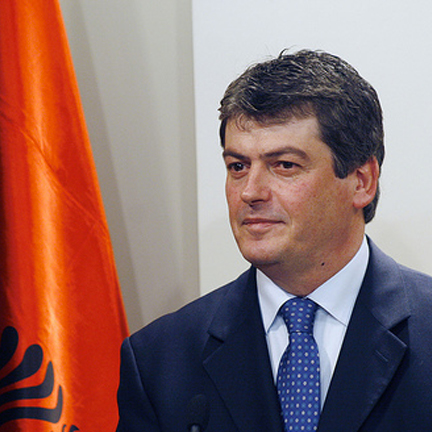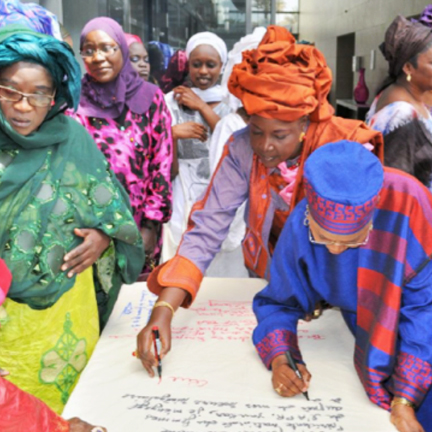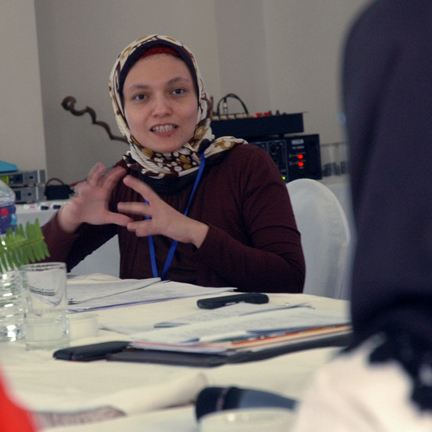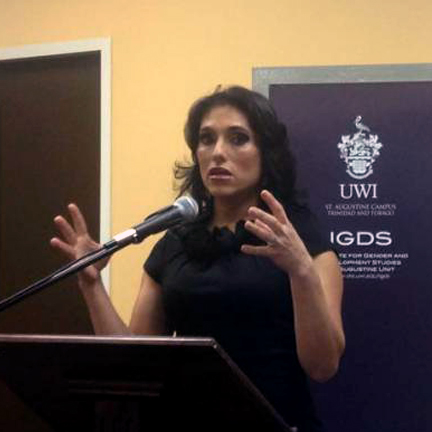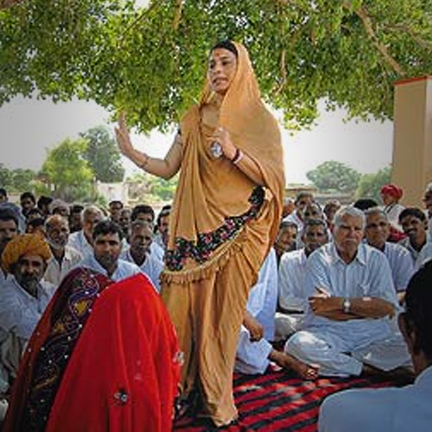Strengthen Women’s Political Participation and Decision-Making Power
Paving the way for more women in the political, business, and civic arena is an investment in more just, equitable, and peaceful societies.
Girls and women have a right to engage in civil society, vote in elections, be elected to government office, serve on boards, and make their voices heard in any process that will ultimately affect them, their families, and their communities. Investing in girls’ and women’s right to political participation is a necessary step to achieving global gender equality and democratic governance.
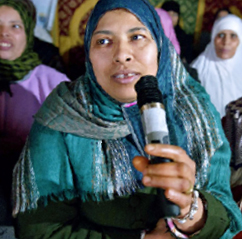
Need Evidence
and Strategies?
-

Roughly 23.8% of parliamentarians globally were women in 2018
-

In 2017, only 31 countries in the world had 30% or more women ministers
-

Between 1992-2011, women accounted for less than 9% of participants in peace negotiations
-

Women in positions of authority tend to: resolve national crises without resorting to violence, advocate for social issues that benefit all, and allocate budgets to health and education
-
Companies with strong female leadership on their boards have shown a return on equity that is 10.1% annually vs. 7.4% from companies without
Investing in girls and women creates a ripple effect that yields multiple benefits, not only for individual women, but also for families, communities, and countries. Studies show that increasing women’s participation in politics leads to greater investments in education and companies with female board representation boast higher ROI. Research also suggests that gender balance in the political sphere promotes gender balance in the workforce, which could double global GDP growth by 2025.
Solutions in Action
-
Albanian President Tells Women Leaders to Make their Voices Heard
In 2009, Albanian President Bamir Topi called on women to not only participate in politics and public life, but to actively strive to be seen and heard in those positions. With 10 of 140 parliamentary seats and 1 of 65 mayoral positions occupied by women, Albania had one of the lowest percentages of elected women in Europe. In an effort to shift these statistics, the government has invested in ways to increase women’s effective and visible participation in politics as a means of maintaining a stable, democratic government and economic growth. -
Doubling the Proportion of Women Parliamentarians in Senegal
In 2010, Senegal adopted legislation calling for women to be guaranteed seats in all elective bodies at every level of government. In preparation for the 2012 elections, the government, along with civil society and UN Women, launched an awareness campaign and a training program on the electoral process to educate and encourage female candidates. The outcome of the 2012 elections resulted in a near balance between men and women in the National Assembly – a tangible shift toward gender parity and democracy. -
-
The Peace Table Project
As the Asia-Pacific focus of the Women at the Peace Table project, Indonesia has made great efforts to attain gender balance in peace negotiations through a participatory process. Through convening actors from government and civil society, the project has yielded positive dialogue around ways to develop sounder and more gender-inclusive policies for peacebuilding. From these meetings, a report, Women at the Indonesian Peace Table: Enhancing the Contributions of Women to Conflict Resolution, was released, outlining the positive effects of women in leadership roles. As a follow-up, training sessions were conducted to address the relationship between women, peace, and security. -
Train, Run, Win, and Lead
An umbrella network of women’s organizations in Trinidad & Tobago launched a training program in 2013 to educate women on the fundamental elements of politics in their country. “Train, Run, Win and Lead” not only educates women about who is responsible for what in government, but the program works to empower them to fully participate in positions of leadership and ultimately effect change. Following the first round of trainings, women won half of the seats in local elections – all of which had previously been held by men. -
Women in India Influence Local Politics
By 2009, women’s grassroots political representation in India had reached 50%. Prior to the 73rd Amendment Act in 1992, women were often restricted from elected positions. The act changed that by reserving at least one-third of the seats of all Panchayat Councils and one-third of all Pradhan (head of the Panchayat) for women. Since its inception, women Panchayat Raj (village committee) leaders have become increasingly involved in their communities, ensuring that issues such as quality healthcare and education, as well as the financial considerations necessary to realize access to these services, are discussed at meetings. As a result of their participation, there was a 62% increase of potable water projects in these communities initiated by a woman leader, as compared to communities with male leaders.
Policy Asks
-
Eliminate structural and legal obstacles that hinder all girls' and women’s participation in politics and decision-making, and hold those obstructing them accountable.
-
Offer training programs for young people, women, and men on political systems, girls' and women’s right to participation, and roles in decision-making, as well as unconscious bias training and inclusion.
-
Introduce temporary quota systems and inclusive, gender-sensitive leadership pathways to help bring all girls and women into political spheres.
-
Secure equal visibility of female politicians and decision-makers, and promote more inclusive representation of leadership.
-
Promote women in leadership and decision-making roles at all levels, including at peace negotiation tables and in humanitarian emergencies.
-
Promote community and sport programs that foster leadership skills for girls and women and promote gender equality.
-
Support women’s leadership in the workplace through greater inclusion in executive positions and on corporate boards.
-
Fund grassroots organizations that build the capacity of girls and women to participate both individually and collectively in social, economic, political, and public life.

